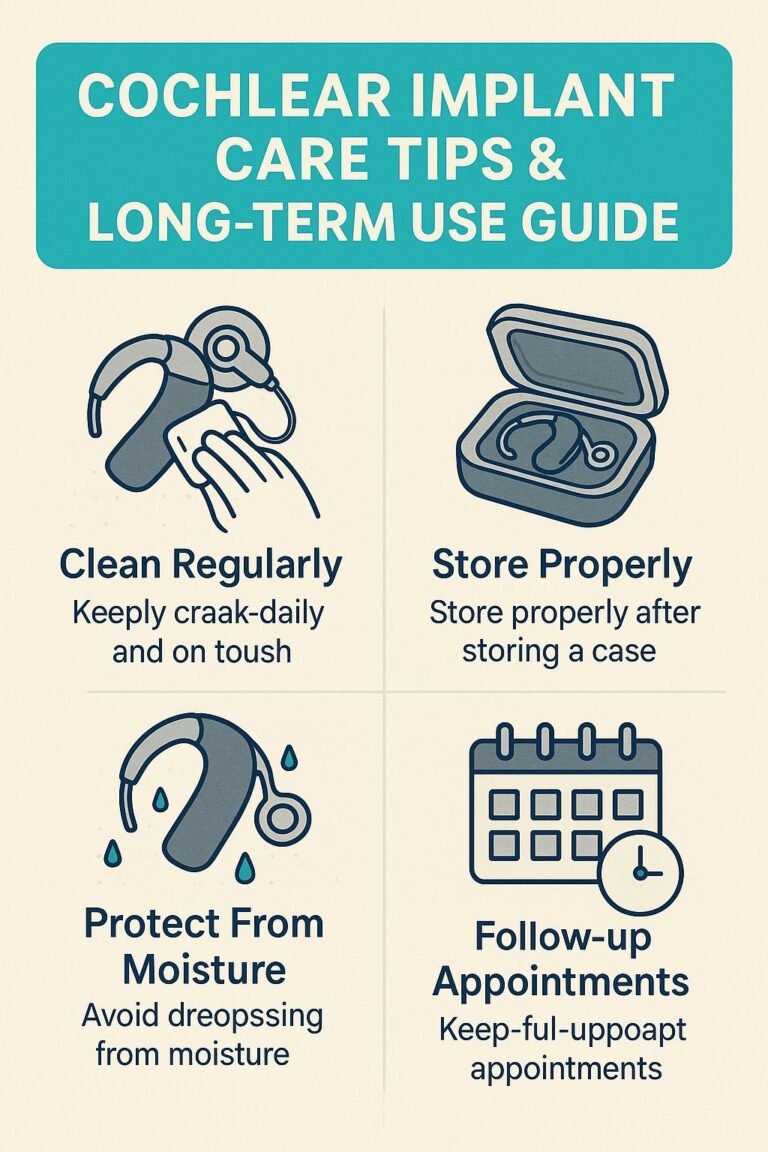Key Points
- Consuming smaller, more regular meals can help alleviate acid reflux symptoms.
- Avoiding foods that trigger acid reflux such as chocolate, caffeine, and spicy foods is key.
- Natural treatments like ginger and chamomile tea can help soothe symptoms.
- Keeping a healthy weight and quitting smoking can greatly reduce symptoms.
- If over-the-counter medications do not alleviate symptoms, see a healthcare provider.
How to Effectively Manage Acid Reflux
Acid reflux can be a frustrating and uncomfortable condition. It’s the burning feeling in your chest, often following a meal, that can make you feel downright miserable. But don’t fret; there are effective ways to manage and even alleviate those symptoms. Let’s explore what acid reflux is and how you can effectively manage it.
What is Acid Reflux?
Acid reflux is a condition that occurs when stomach acid flows back up into the esophagus, which is the tube that connects your mouth to your stomach. This backward flow, or acid reflux, can cause irritation to the lining of your esophagus. While many people experience acid reflux occasionally, if it happens often, it may be diagnosed as a more serious condition known as gastroesophageal reflux disease (GERD).
Frequent Symptoms
Acid reflux symptoms can differ from person to person, but here are some of the most frequent ones:
- Heartburn – a burning sensation that can move from your stomach to your chest or even throat.
- Regurgitation – a sour or bitter taste in the back of your throat or in your mouth.
- Difficulty when swallowing.
- Persistent cough or an aching throat.
- The feeling of having a lump in the throat.
Recognising these symptoms is the first stage towards finding relief and making the required changes to your lifestyle.
DIY Treatments for Acid Reflux
If you’re not quite ready to reach for the medicine cabinet, there are several home remedies you can try that may help to ease your acid reflux symptoms. Many of these remedies involve making dietary changes or using natural solutions, and they can be both effective and easy to put into practice.
Importance of Diet
Managing acid reflux is heavily influenced by your diet. The food you consume, the amount of food you eat, and the timing of your meals can all affect the intensity of your acid reflux symptoms. Making wise food choices can be your first step in battling acid reflux.
First and foremost, you should try to eat smaller meals more often throughout the day. This can stop your stomach from getting too full and pushing acid up into your esophagus. You should also avoid laying down right after you eat, as it can make your symptoms worse.
Top Foods for Alleviating Acid Reflux
Some foods can provide relief for your symptoms and decrease the number of acid reflux flare-ups you experience. Here are some foods you should consider adding to your diet:
Here are some of the best foods to eat to help manage acid reflux:
- Oatmeal – This breakfast staple is high in fiber, which is known to absorb acid in the stomach and reduce symptoms of acid reflux.
- Ginger – This root has been used for centuries for its anti-inflammatory properties. You can consume it in a tea or add it to your meals.
- Leafy greens – Vegetables like spinach and kale are alkaline, which means they can help neutralize the acid in your stomach.
- Bananas – These fruits are low in acid and can help coat the lining of the esophagus, reducing symptoms of acid reflux.
Adding these foods to your daily meals can make a big difference in managing your acid reflux symptoms.
Foods to Steer Clear Of
Some foods can help soothe symptoms, while others can spark them. Identifying and avoiding these triggers is key to preventing discomfort:
- Chocolate – It contains caffeine and theobromine, which can cause the esophageal sphincter to relax.
- Caffeine – Found in coffee, tea, and some sodas, caffeine can increase stomach acid production.
- Spicy foods – These can irritate the esophagus and worsen symptoms.
- Fried or fatty foods – These can slow down digestion and increase pressure on the stomach.
Avoiding these foods can help keep acid reflux at bay and improve your overall digestive health.
Natural Herbal Remedies
Alongside changes to your diet, you can also try herbal remedies to help with acid reflux. Many herbs can calm down inflammation and help with symptoms.
The Power of Ginger
As a potent herb, ginger has been recognized for its digestive advantages for hundreds of years. It has been used to address a variety of gastrointestinal problems, including acid reflux. Here are some ways to make ginger a part of your daily routine:
- Include fresh ginger in your meals or smoothies.
- Make ginger tea by soaking fresh ginger slices in hot water.
- Add ginger powder to your cooking or baking.
Since ginger has the ability to lessen inflammation and counteract stomach acid, it can be a beneficial part of your plan to manage acid reflux.
Chamomile Tea
Chamomile tea is another natural remedy that can help with acid reflux symptoms. Its soothing properties can help manage stress, which is a known cause of acid reflux. Drinking a cup of chamomile tea before going to sleep can help you relax and avoid symptoms during the night. For more on improving sleep quality, consider exploring grounding sheets for a better night’s sleep.
Safe Use of Apple Cider Vinegar
Apple cider vinegar is frequently recommended as a natural treatment for acid reflux. Some individuals find it beneficial, but it must be used correctly. To help with digestion, dilute a little apple cider vinegar in water and drink it before meals. It should not be consumed undiluted, however, as this can cause esophageal irritation.
Changes in Lifestyle to Ease Symptoms
In addition to dietary adjustments and herbal treatments, making changes to one’s lifestyle can have a substantial effect on the management of acid reflux. These changes can assist in reducing the frequency and intensity of symptoms.
Keeping a Healthy Weight
One of the most important things you can do to manage acid reflux is to keep your weight in check. When you’re overweight, it puts extra pressure on your stomach, which can force acid up into your esophagus. Even losing a little bit of weight can help relieve this pressure and reduce your symptoms.
Coming up, we’re going to look at more ways you can change your lifestyle and we’ll also discuss over-the-counter medicine and when you might need a prescription. Keep reading for more tips on how to handle acid reflux.
The Role of Smoking and Alcohol
Drinking alcohol and smoking are two lifestyle habits that can drastically exacerbate the symptoms of acid reflux. Smoking can cause the lower esophageal sphincter (LES), which is the muscle that stops stomach acid from refluxing into the esophagus, to weaken. When this muscle is not functioning properly, it is easier for acid to leak out, causing heartburn and other symptoms.
Drinking alcohol can lead to more stomach acid being produced and it can also cause the LES to relax, both of which can cause acid reflux. Alcoholic drinks like wine and beer are also acidic, which can cause more irritation to the esophagus. So, cutting down on or stopping smoking and drinking alcohol can be a key part of managing acid reflux effectively.
Why You Should Stay Upright After Eating
One of the easiest ways to help reduce the symptoms of acid reflux is to remain upright after you eat. If you lay down right after you eat, gravity can no longer assist in keeping the contents of your stomach down, which can cause reflux.
Instead, aim to stay vertical for a couple of hours after you eat. This uses gravity to keep stomach acid where it belongs and lowers the risk of it flowing back up into your esophagus.
How to Sleep to Soothe Acid Reflux
- Prop the head of your bed up by 6 to 8 inches to keep acid from flowing upwards.
- Sleep on your left side to lower the chances of reflux.
- Don’t lie flat on your back or stomach, as these positions can make symptoms worse.
These changes can greatly help manage acid reflux at night and improve the quality of your sleep.
For example, you can raise the head of your bed by putting blocks or risers under the bedposts or using a wedge pillow. This slope helps keep the contents of the stomach down by using gravity, which makes it less likely for acid to move upwards.
How Over-the-Counter Medications Can Help
If you’ve tried changing your diet and lifestyle but still suffer from acid reflux, over-the-counter (OTC) medications could provide the relief you need. These medications are designed to either neutralize the acid in your stomach or decrease the amount of acid your stomach produces.
When to Take Antacids
Antacids are a well-known and fast solution for easing infrequent heartburn and acid reflux. They function by counteracting the acid in the stomach, providing immediate relief from symptoms. Tums, Rolaids, and Maalox are some well-known antacids.
Yet, antacids are more suitable for short-term relief and should not be your go-to for chronic symptoms, as they do not deal with the root causes of acid reflux.
What Alginates Do
Alginates are another over-the-counter medication that can help manage acid reflux. They create a protective layer over the stomach contents to keep acid from getting to the esophagus. For those looking to improve their overall well-being, understanding optimal daily water intake can also be beneficial in managing digestive health.
Unlike antacids, this barrier can provide relief that lasts longer and is particularly useful for symptoms that happen at night. Many people find Gaviscon, a popular alginate-based product, to be very effective.
Keep in mind that while alginates can provide relief, they should be used together with lifestyle changes for optimal results.
- For maximum effectiveness, use alginates after eating and before going to bed.
- Stick to the suggested dose to prevent any side effects.
Possible Side Effects
Despite their effectiveness, over-the-counter drugs may have side effects. Antacids can cause constipation or diarrhea, depending on their composition. Excessive use of antacids can also result in electrolyte imbalances.
Most people tolerate alginates well, but they can cause bloating or nausea in some people. Always stick to the recommended dose and talk to a healthcare professional if you have any side effects.
When to Think About Prescription Treatments
When over-the-counter medications and lifestyle changes aren’t enough to manage acid reflux symptoms, it might be time to think about prescription treatments. These medications are usually more potent and can offer longer-lasting relief.
How to Know When Over-the-Counter Treatments Aren’t Cutting It
If you’re not getting any relief from over-the-counter treatments, have trouble swallowing, or are losing a lot of weight, it’s time to get some professional medical advice.
If acid reflux continues, it can lead to problems like esophagitis or Barrett’s esophagus, so it’s important to take care of it as soon as possible. For those experiencing anxiety due to ongoing health issues, there are solutions and tips for managing anxiety effectively.
Seeing a Stomach Specialist
It’s a good idea to see a stomach specialist if your symptoms are bad or not getting better. They can do tests, like an endoscopy, to check your esophagus and find out the best treatment.
When you talk with the specialist, make sure you tell them about your symptoms, what you eat, and any medicine you’re taking. This will help them come up with a treatment plan that’s just for you. For those dealing with anxiety related to health issues, you might find these anxiety solutions and tips helpful.
Looking at Prescription Medications
There are two types of prescription medications used to treat acid reflux: proton pump inhibitors (PPIs) and H2 receptor blockers. PPIs, like omeprazole and lansoprazole, decrease the amount of acid the stomach makes, providing long-lasting relief. For more information on these treatments, you can explore the GERD treatment options available at Mayo Clinic.
Other acid-reducing medications, such as ranitidine and famotidine, are known as H2 receptor blockers. These are typically less powerful than PPIs, but your doctor can help you decide which one will work best for you.
Final Thoughts: Successfully Handling Acid Reflux
Successfully handling acid reflux involves a mix of altering your lifestyle, adjusting your diet, and, if needed, taking medication. By knowing what sets off your acid reflux and taking steps ahead of time, you can greatly decrease symptoms and enhance your quality of life.
Adopting a Well-rounded Strategy
Managing acid reflux effectively requires a well-rounded strategy that addresses every part of your lifestyle. This means keeping a healthy weight, steering clear of foods that trigger acid reflux, and using natural remedies when necessary.
Regular Check-ins and Tweaks
Regularly checking in on your symptoms and making tweaks as necessary is key. Keep track of what you eat to pinpoint triggers, and don’t be afraid to experiment with different approaches to see what suits you best.
Don’t forget, it’s a continuous journey to manage acid reflux, but with the right plan, you can find comfort and live a healthier, more comfortable life. Ensuring an optimal daily water intake can be a part of that plan.
Commonly Asked Questions
Acid reflux can be a puzzling and worrisome condition, but knowing more about it can help you handle it better. Below are some common questions about acid reflux and their responses. If you’re also dealing with anxiety issues, you might find these anxiety solutions and tips helpful.
What is the origin of acid reflux?
Acid reflux mainly comes from a problem with the lower esophageal sphincter (LES), a muscle ring that serves as a gate between the esophagus and stomach. If the LES doesn’t close all the way or if it opens too often, stomach acid can make its way into the esophagus, leading to symptoms. Common triggers are eating big meals, lying down after a meal, certain foods and drinks, and being overweight.
Does stress make acid reflux worse?
Yes, stress can make acid reflux worse. When you’re stressed, your body makes more stomach acid, which can cause more reflux. Stress can also make you eat fast or eat unhealthy food, both of which can make acid reflux worse. So, if you manage your stress with things like exercise, meditation, or deep breathing, it can help make your acid reflux less frequent and less severe.
Moreover, stress can lead to habits such as smoking or drinking alcohol, which are known to exacerbate acid reflux. Therefore, dealing with stress is a vital part of effectively managing your symptoms.
What is the role of water in acid reflux?
Staying well-hydrated can help control acid reflux by reducing the concentration of stomach acid and aiding digestion. Regular water intake throughout the day can help wash away acids and keep the digestive system running smoothly. However, it’s crucial not to overdo water consumption during meals, as this can cause the stomach to become too full and put pressure on the LES, causing reflux. For more information on maintaining proper hydration, check out these optimal daily water intake guidelines.
Can exercise help with acid reflux?
Yes, exercise can be a great way to manage acid reflux. It’s especially beneficial if it helps you lose weight and aids in digestion. Low-impact exercises such as walking, cycling, and yoga are all good choices. They can help reduce stress and improve overall health without putting too much pressure on your stomach.
But, steer clear of high-impact workouts that could shake up the contents of your stomach, like running or jumping, particularly right after you’ve eaten. It’s a good idea to wait at least an hour after eating before you start exercising.
Can I safely combine herbal remedies with over-the-counter medications?
Many individuals have found success in managing their acid reflux symptoms by using herbal remedies alongside over-the-counter (OTC) medications. However, it is crucial to speak with a healthcare provider before starting any combination treatments. Some herbal remedies can interact with medications, potentially diminishing their effectiveness or leading to side effects.
Always let your doctor know about any supplements or herbal remedies you’re taking, and follow their advice to make sure they’re safe and effective.
- Make sure to check if any herbal remedies could interfere with your medications.
- Begin with lower doses to see how your body reacts.
- Keep a record of any symptom changes and let your healthcare provider know.
When should I see a doctor about my acid reflux?
If your acid reflux symptoms are persistent or severe, you should seek medical attention. Some signs that you should make a doctor’s appointment include:
- Heartburn that is occurring more than twice in a week.
- Struggling to swallow or feeling like food is lodged in the throat.
- Unexpected weight loss or not feeling hungry.
- Throwing up or spitting up blood.
These symptoms could be a sign of a more severe condition like GERD or esophagitis, and you should seek professional medical advice and treatment.
What can I do to stop acid reflux at night?
Acid reflux at night can be a real pain, messing up your sleep and making you uncomfortable. Here are some tips to help you prevent it:
- Try not to eat large or spicy meals too close to when you go to sleep.
- Raise the head of your bed by 6 to 8 inches.
- Sleep on your left side to take the pressure off the LES.
- Make sure to wait at least two to three hours after eating before you lie down.
These changes can help reduce the amount of reflux you experience at night and improve the quality of your sleep.
Can some medications lead to acid reflux?
Indeed, some medications can lead to acid reflux by either relaxing the LES or irritating the esophagus. Some of the usual suspects include nonsteroidal anti-inflammatory drugs (NSAIDs), some types of blood pressure medications, and certain muscle relaxants. If you think your medication might be causing reflux, it would be best to speak to your healthcare provider. They might be able to change your prescription or suggest other options.
Does apple cider vinegar actually work for acid reflux?
Apple cider vinegar is a well-known natural treatment for acid reflux, but its effectiveness can differ between individuals. Some people find that it helps to balance the levels of stomach acid and lessen symptoms, while others do not notice any improvement. If you choose to try apple cider vinegar, make sure to dilute it in water and drink it before eating. However, if you observe any irritation or if your symptoms get worse, stop using it and seek advice from a healthcare professional.
Keep in mind that apple cider vinegar isn’t a replacement for medical care, particularly for chronic or severe acid reflux.
What are the long-term effects of taking antacids?
Antacids can provide immediate relief from acid reflux, but using them long-term can result in potential side effects. Too many antacids can lead to an electrolyte imbalance, constipation, or diarrhea. Some antacids also contain aluminum or magnesium, which can cause problems if overused.
If you are frequently using antacids, it’s crucial to talk to a healthcare professional to look at other treatment options and tackle any root problems.
What lifestyle changes can help you feel better right away?
There are several lifestyle changes you can make that will help you feel better right away if you’re suffering from acid reflux:
- Instead of three big meals, have smaller ones throughout the day to avoid stuffing your stomach.
- Don’t go to bed or lie down right after a meal. Instead, stay upright for two to three hours.
- Keep away from foods that you know trigger your acid reflux.
- Try out stress-relief methods like deep breathing exercises or meditation.
These lifestyle modifications can help manage your symptoms and improve your digestion.
Is it possible for kids to have acid reflux?
Indeed, kids can have acid reflux, and it may present differently than it does in adults. Symptoms in kids can include regular vomiting, coughing, refusing to eat, or having trouble gaining weight. If you think your child has acid reflux, you should see a pediatrician for an assessment and advice. Treatment might include changes in diet, changes in lifestyle, or medication, depending on how severe the symptoms are.
Knowing what causes acid reflux and how to treat it means you can take positive action to control your symptoms and boost your quality of life. Whether it’s making changes to your lifestyle, tweaking your diet, or getting medical help, you can find relief. For those interested in exploring alternative treatments, consider learning about the benefits of peptide therapy as a potential option.










